Tallinn University (EE)
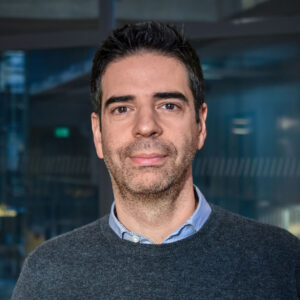
Nuno N. Correia is an Associate Professor in Digital Transformation at Tallinn University. Since 2000, he has been teaching and conducting research in media art and interaction design, in several universities internationally (such as Aalto University, Goldsmiths, University of Greenwich, University of Madeira). He holds a PhD in Art and Design in New Media, from Aalto University, with the thesis ‘Interactive Audiovisual Objects’ (2013). Nuno is also an associated researcher at the Interactive Technologies Institute (University of Lisbon). He has led several research projects combining sound, image, embodiment and interaction design, including a Marie Skłodowska-Curie postdoctoral fellowship and two Creative Europe projects. Previously, he worked at the design consultancy Fjord (now Accenture Song). Nuno has published over 50 peer-reviewed articles, in top Human-Computer Interaction conferences such as CHI, DIS and TEI; in audio venues such as NIME, SMC and Audio Mostly; and media art conferences such as ISEA, ICLI and ARTECH.
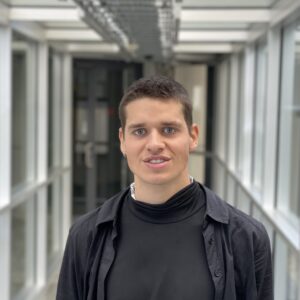
William Primett is a Postdoctoral Researcher at Tallinn University, specialising in Movement Computing and Computational Creativity. Previously, affiliated with the AffecTech consortium supported by the Marie Sklodowska-Curie Innovative Training Network, pursuing the design of wearable technologies for emotional understanding in consideration of mental health disorders. The outcomes of which contributing to their PhD thesis “Non-Verbal Communication with Physiological Sensors: The Aesthetic Domain of Wearables and Neural Networks” (2023), advocating for non-representational biofeedback appropriate for interpersonal dialogue. William’s current research aims to develop textile-based paradigms for self-expression, intended to project biologically meaningful information, unbounded to clinical environments.
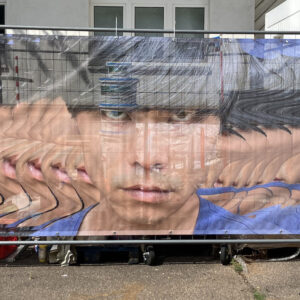
Naoto Hieda is a researcher and an artist from Japan based in Estonia enrolled in the PhD programme at the School of Digital Technologies Tallinn University. With a background in engineering (B.Eng. at Tokyo Institute of Technology, Japan and M.Eng. at McGill University, Canada), Naoto recently completed Diplom II (master’s equivalent) with distinction from the Academy of Media Arts in Cologne, Germany and works internationally for theater productions and in the visual arts. As a full-stack net artist, they question the productive qualities of coding and speculate on new forms, post-coding through neuroqueerness, decolonization and live coding. As a researcher, they fill the gap between dancers and technologists by proposing new tools and methodologies for collaboration.
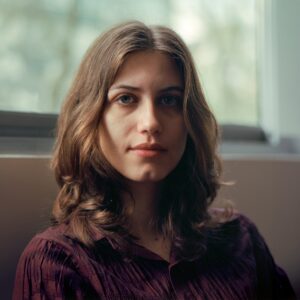
Andreia Matos is a scientist and engineer from Portugal. Holds a Bachelor’s and Master’s in Computer Science and Engineering, specializing in Artificial Intelligence and Interaction, from Instituto Superior Técnico of the University of Lisbon, with the master’s thesis “On the Feeling of Acoustic and Visual Tension in Generative Art” (2022). Currently works as a Data Scientist in the Research and Development of AI Algorithms at Nokia, has contributed to various research initiatives, teaching endeavors and cultural events.
Sõltumatu Tantsu Lava (EE)
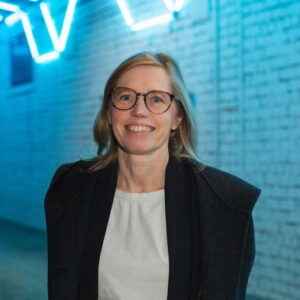
Triinu Aron has been involved with STL since Nov. 2005 as a founder of the organization and today working in the company as a Managing Director. Her previous working experiences are from Art Museum of Estonia working there as a marketing director while the new museum building Kumu was opened. Before has been involved in business sector as her Bachelor degree is from international business management. The Master degree is in Culture Management in the University of Tartu / Open University and advocated my Master thesis in “Art Product and Its Value in an Estonian Culture Environment Context”. One of the founder and now a member of the Estonian Dance Roundatable. From 2014 the new independent dance stage in Tallinn – Sõltumatu Tantsu Lava- were opened and she was the leader of this process still now.
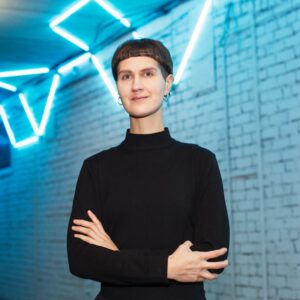
Kärt Kelder works as a creative producer and communication specialist in Sõltumatu Tantsu Lava (STL) since 2021. She has her masters degree in cultural sociology from University of Amsterdam, and bachelors degree in journalism and Estonian literature and theatre studies from University of Tartu. Her previous working experiences are in Estonian History museum as an event and exhibitions producer, and in Estonian Broadcasting radio as a news editor and presenter. From time to time she writes about culture, mostly about theatre and music. For her it is important to believe in art in its different forms and not to shy away from things that seem complex in the first glance.
Hochschule Düsseldorf (DE)
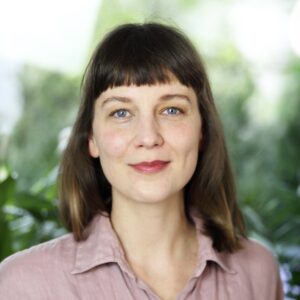
Ivana Druzetic-Vogel is a cultural anthropologist and cultural project manager with 15 years of professional experience at an international level. Since 2018, she has been working as research associate in the MIREVI team at the University of Applied Sciences in Düsseldorf, Germany, where she conducts interdisciplinary research at the interface of art, culture and mixed reality technologies and manages several digital projects in this field. She is interested in exploring the effects and potentials of the digital turn in the cultural and artistic sphere, using her anthropological background to facilitate exchange and understanding between cultural actors and the technical field.

Prof. Dr. Chris Geiger is professor of Mixed Reality and Visualization (MIREVI) at the Faculty of Media, University of Applied Sciences, Düsseldorf (Hochschule Düsseldorf) and leads MIREVI Team (www.mirevi.de), a group of 40 students and young researchers. Chris published over 120 papers in the areas of system design, artificial intelligence, computer graphics, mixed reality and human-computer interaction and served as reviewer and PC member in several conferences including CHI, IEEE VR, UIST and others. Since 2015 he directs the InnovationHub (www.innovationhub.de), an external think tank that is operated in close collaboration with two SMEs. His current work focuses on transfer projects and how applied state-of-the-art research can directly influence the work of external partners like industry, SMEs and cultural organizations.
tanzhaus nrw (DE)
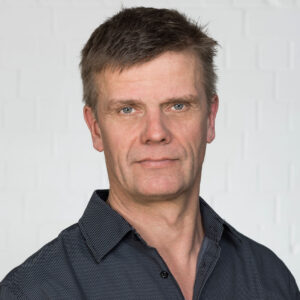
Stefan Schwarz has been a program director at tanzhaus nrw in Düsseldorf since 1998. He graduated in cultural education and arts management at the University of Hildesheim with a thesis on postmodern dance. In the early 1990s he danced at Ormand Performance in Cologne and organized festivals for theater and dance movies. In 2004 he co-curated the Tanzplattform Deutschland, and in 2005 he was the curator of the European artist laboratory Colina. He was a jury member a.o. at the choreographic competition Danse L’Afrique danse in 2008 in Tunis and at the Dutch dance film festival Cinedans in 2013. From 2012 to 2017 he was the project manager of the exchange programs Dance Dialogues Africa and Shifting Realities. Since 2006 he is responsible for the annual media dance festival Temps d’Images at tanzhaus nrw.
Interactive Technologies Institute (PT)
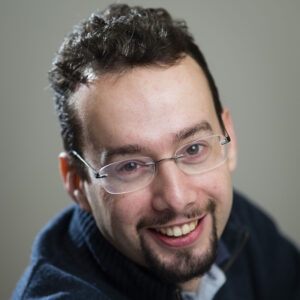
Diogo Cabral is Research Fellow at the Institute of Interactive Technologies (ITI), Laboratory of Robotics and Engineering Systems (LARSyS), IST, University of Lisbon. Previously, he was Assistant Professor at the Department of Computer Engineering and Interactive Media Design, University of Madeira (UMa), Portugal, and a Postdoctoral Researcher at the Helsinki Institute for Information Technology (HIIT), University of Helsinki (UH), Finland. He received his Ph.D. in Computer Science from NOVA University of Lisbon (UNL), Portugal, in February 2014. He published over 30 peer-reviewed papers, supervised or cosupervised more than 10 master theses, and is cosupervising a Ph.D. thesis on creativity. Diogo Cabral’s research interests include human-computer interaction, multimedia, and interactive tools to support creativity, sense, and decision-making. In his research, Diogo Cabral aims to study the impact of interactive and intelligent tools on human behavior and creativity, making these tools more transparent and improving human sense and decision-making.
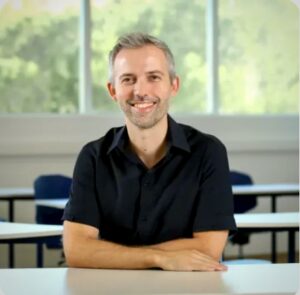
David dos Santos is a PhD candidate in Philosophy of Science, Technology, Art and Society [University of Lisbon], Holds an MA in Multimedia Culture and Art [FEUP|U.T. Austin] and a BA in Theatre Studies [ESMAE]. In scientific research, he was an FCT doctoral grantee and a collaborator/researcher of the international projects Blackbox: Arts & Cognition and TKB: Transmedia Knowledge-Base for Performing Arts; Organizer of Nova University of Lisbon’s TKB and PAI international conferences. Taught at various institutions and is currently a Professor at Lusófona University. He worked in direction and performed in several Performing Arts productions in Portugal and Germany. His latest endeavours include completing the Social Presencing Theater Practitioner Development Program at the Presencing Institute and his doctoral dissertation in Emergent Embodied Creativity. He is currently at the Interactive Technologies Institute working on the MODINA – Movement, Digital Intelligence and Interactive Audience international project.
Kino Šiška (SI)
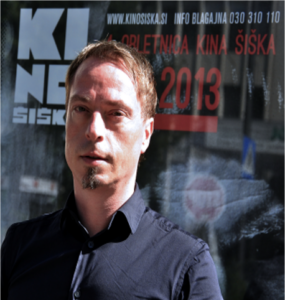
Mitja Bravhar has a degree in History and Art History. Since 2009, he has been working in Kino Šiška as an Assistant Manager for Management and Finance and a Theatre and Dance Programme Manager. He has more than 20 years’ experience in working for various public cultural institutes and non-profit organisations as well as for private-sector companies where he has been primarily responsible for public relations, marketing, production, programming as well as the event and festival organisation (City Museum of Ljubljana, Ljubljana City Theatre, Špas Theatre and Mini Theatre). He oversees the art programme performances and managing international art projects. He is a producer and a member of the artistic board of CoFestival – International contemporary dance festival. In the year 2019 he became a member of Board of Directors of EDN – European Dancehouse Network.
Trafó (HU)
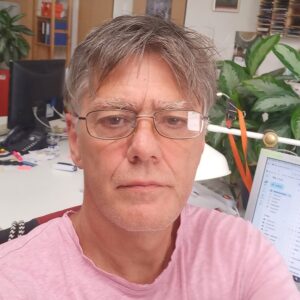
György Szabó After graduating in economics, he continued his previous work in arts management, which he started on a voluntary basis in the university club. After a few years, he became intensively involved in promoting contemporary experimental performing arts. His initial main interests were contemporary dance and new music. Through his international activities, many contemporary art productions in Hungary have received wide publicity and recognition, which has raised the prestige and widened the public profile of the field. In 1992, thanks to these successes, he established the Műhely Foundation to create an institution for Hungarian artistic innovation in the near future. Finally, six years later, in 1998, under his leadership, Trafó – House of Contemporary Art in Budapest opened its doors. In just a few years, Trafo has built up a considerable national and international reputation and has cultivated a significant audience over the years. From the very beginning, Trafó’s main objective has been to promote the achievements of contemporary performing and visual arts and to introduce them to the international art scene. To this end, in 2008 it launched Dunapart, a platform for national artists to promote their inclusion in the international circuit, which has been able to generate invitations and collaborations abroad to this day.

Molnár Dávid Márk – Theatrical professional with a degree in Philosophy and Aesthetics from the Faculty of Humanities at Eötvös Loránd University. He has been working in the independent theatre and dance community in Hungary for five years in creative and operational roles – in management, organisation and communication. He is a communication specialist and copywriter at Trafó House of Contemporary Arts.
Centrul Național al Dansului București (RO)
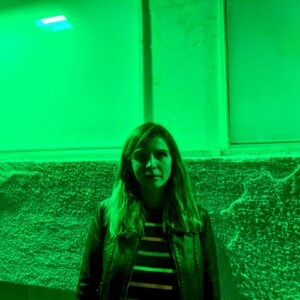
Ana Papadima has been involved in artistic education and training projects for CNDB since 2016. She has a BA in Sociology and an MA in Anthropology. She is currently coordinating dance project ‘SEEDS’ – with a focus on dance training, international co-production and circulation of dance works. She has organized the 2 editions of the `Academy of Dance and Performance`(2019-20 and 2022-23), a training program for emerging dancers, performers and dance producers, as well as the `Performing Arts School for Children` and other dance education programs for artists and non-professionals.
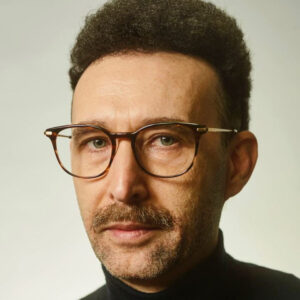
Mihai Mihalcea is a graduate of the Choreography High School and of the National University of Theatre and Film Arts “I.L.Caragiale”, Choreography Department, Bucharest. In the 1990s he was a dancer at the Komische Oper Berlin and a collaborator of the Christian Trouillas Company in Paris. As an artist he contributed to the international recognition of Romanian contemporary dance and, at the same time, he played an essential role in the steps that led to the establishment or activity of structures and institutions that have become landmarks of this art: Marginalii Group (the first independent contemporary dance group founded after ’89), Inter/National Centre for Contemporary Dance, Multi Art Dance Centre, and co-founder of the first public institution dedicated to contemporary dance – National Centre of Dance Bucharest (CNDB) whose director he was from 2006-2013. For the projects developed within the CNDB he was nominated for the “Paris – Europe 2006” award by the Maison d’Europe et d’Orient in Paris.
